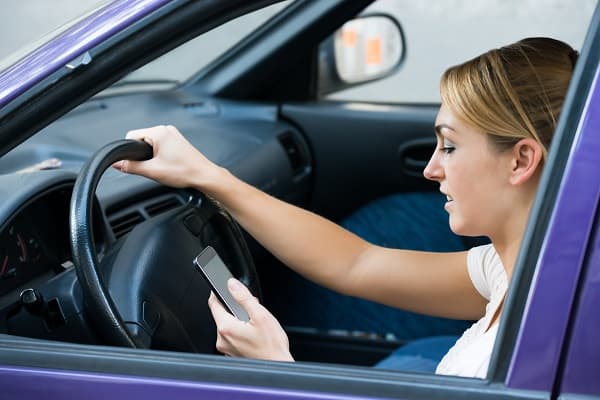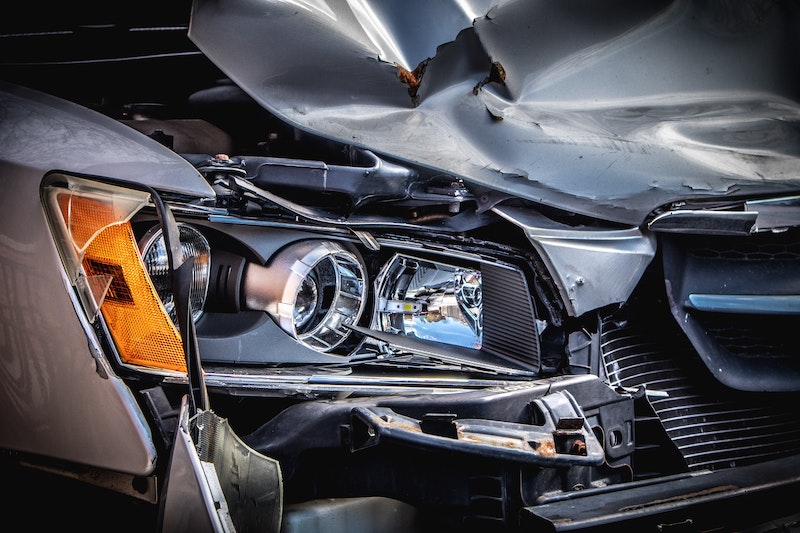
The cell phone is a wonderful invention that has helped make the world a more connected place. No matter where you are in the world, you can reach out and call a loved one, make reservations at a restaurant, or get in contact with emergency services with just the press of a button. (Or with modern advances, ask “Siri” or “Google” to make the call for you.)
However, while cell phones make us more connected, they have also made the roads more dangerous. Texting and driving has increased the number of accidents across the United States. According to the National Highway Traffic Safety Administration (NHTSA), more than 3,000 people are injured or die every year due to accidents caused by texting and driving. In response to the increase in accidents, the State of Texas passed cell phone usage laws in 2017 to make it illegal to text while driving. These laws were designed to discourage drivers from using their cell phones while on the road by punishing these acts with hefty fines. To protect yourself and your family, here are the cell phone laws you need to know to keep yourself and your family safe while on the road.
What Are the Current Cell Phone Usage Laws in the State of Texas?
In 2017, the State of Texas passed cell phone usage laws to aid in the protection and safety of Texas drivers while on the road by making it illegal to use a mobile device while driving. The car accident attorneys at Branch & Dhillon, P.C. has created an overview of these laws, but if you would like to know the finer details, here is a link to the statute outlining the cell phone usage laws in more detail.
Cell Phone Usage in School Zones
- Under no circumstances are drivers allowed to make calls or texts while driving in a school zone. This includes hands-free calling features on vehicles.
- Drivers are not permitted at all to use their handheld devices while inside the school zone, as marked by the distinctive yellow crosswalks.
- School bus drivers are never allowed to use their cell phones while driving, regardless of whether they are in a school zone or not.
- If children are present on the bus, even when it is parked, a bus driver is not allowed to use their cell phone.
Cell Phone Laws for Provisional Licenses
A provisional license is a term used to describe driving permits for individuals learning how to drive and individuals who are under the age of 18. Texas is very clear about these laws as younger and more inexperienced drivers are more prone to accidents, especially when distracted driving.
- Drivers under the age of 18 are not allowed to use voice dictation or hands-free communication while driving.
- Drivers under the age of 18 are required to have their phone stored in a purse or the glove compartment of their car, and either turned off or set to “Do Not Disturb Mode” while driving.
Cell Phone Usage While Driving
- For adults over the age of 18, using hand-free calls is legal as long as you are not in a school zone.
- Drivers cannot use their physical cell phones to call, read, or send text messages while operating a vehicle, even if they are stopped at a red light or stop sign.
The Harsh Reality of Texting and Driving

According to the United States Department of Transportation, it takes about five seconds to read a text message. While this doesn’t seem like a lot of time, if you were driving at around 55 mph, that five-second span would have you missing about 360 feet of travel. Beyond that, it takes about 27 seconds for your brain to refocus on the road and not on the message that you just read, leading to more distance and more time in which the driver is distracted from what is happening around them. This phenomenon is known as the “hangover effect” and can quickly lead to an accident.
While texting and driving laws are set in place to protect drivers from accidents, not everyone follows them. If you have been involved in an accident due to the negligence of another driver using their phone while on the road, you may be entitled to monetary compensation to cover the expenses of medical bills and damages. You will want an experienced attorney on your side to help you navigate through the personal injury process while you focus on your recovery. The dedicated team of car accident attorneys at Branch & Dhillon, P.C. can help. Contact our team today for more information on our services or to schedule a free, no-obligation consultation!

